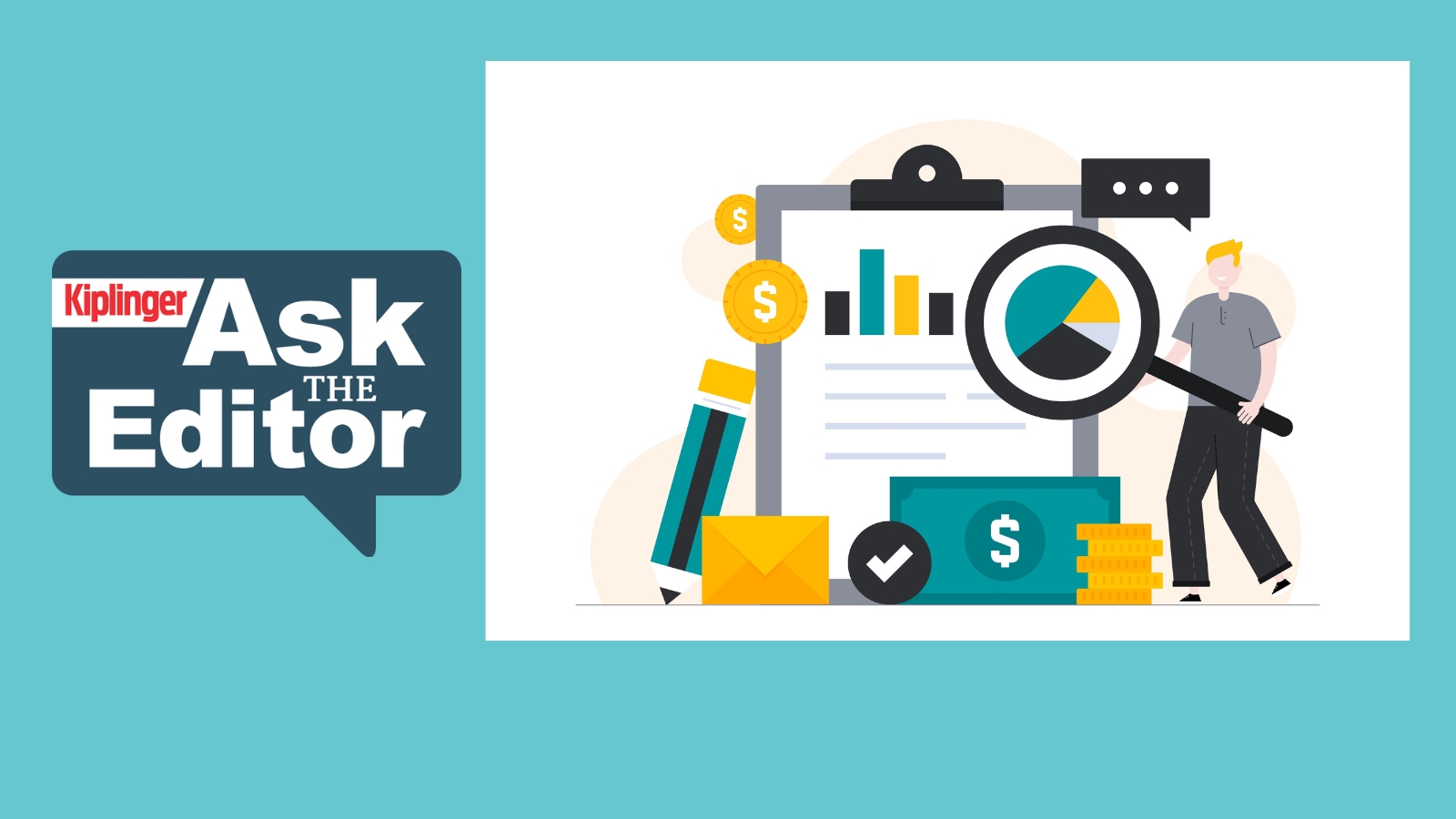401(k) Hardship Withdrawals for Home Repairs
You may be able to take money out of your account to cover the costs of fixing your house after a storm, but be aware of the disadvantages of doing this.

Profit and prosper with the best of Kiplinger's advice on investing, taxes, retirement, personal finance and much more. Delivered daily. Enter your email in the box and click Sign Me Up.
You are now subscribed
Your newsletter sign-up was successful
Want to add more newsletters?

Delivered daily
Kiplinger Today
Profit and prosper with the best of Kiplinger's advice on investing, taxes, retirement, personal finance and much more delivered daily. Smart money moves start here.

Sent five days a week
Kiplinger A Step Ahead
Get practical help to make better financial decisions in your everyday life, from spending to savings on top deals.

Delivered daily
Kiplinger Closing Bell
Get today's biggest financial and investing headlines delivered to your inbox every day the U.S. stock market is open.

Sent twice a week
Kiplinger Adviser Intel
Financial pros across the country share best practices and fresh tactics to preserve and grow your wealth.

Delivered weekly
Kiplinger Tax Tips
Trim your federal and state tax bills with practical tax-planning and tax-cutting strategies.

Sent twice a week
Kiplinger Retirement Tips
Your twice-a-week guide to planning and enjoying a financially secure and richly rewarding retirement

Sent bimonthly.
Kiplinger Adviser Angle
Insights for advisers, wealth managers and other financial professionals.

Sent twice a week
Kiplinger Investing Weekly
Your twice-a-week roundup of promising stocks, funds, companies and industries you should consider, ones you should avoid, and why.

Sent weekly for six weeks
Kiplinger Invest for Retirement
Your step-by-step six-part series on how to invest for retirement, from devising a successful strategy to exactly which investments to choose.
My house was damaged in a big storm, and I need to make major repairs, some of which won’t be covered by homeowners insurance. Most of my savings are in my 401(k). Can I withdraw money from the account to cover the costs?
You generally can’t withdraw money from a 401(k) until you leave your job. But because you need the cash for home repairs caused by storm damage, you may qualify for a hardship withdrawal. The rules for hardship withdrawals vary widely from plan to plan. Some plans don’t allow them at all. Others let you take up to the amount you have contributed if you need the money to satisfy a "heavy and immediate financial need," according to the IRS, for major expenses, such as home repairs resulting from a casualty loss (which includes storms, fires and floods), a home purchase or uninsured medical expenses. Your employer may require documentation of the cost.
There are disadvantages to most hardship withdrawals. Not only are you drawing down retirement savings, but unless the money comes from a Roth 401(k), it will be fully taxed in your top tax bracket and you will owe a 10% early-withdrawal penalty if you are younger than 59½. In most cases, you must stop making new 401(k) contributions for up to six months after taking out the money (that requirement was waived for Hurricane Sandy victims).
From just $107.88 $24.99 for Kiplinger Personal Finance
Become a smarter, better informed investor. Subscribe from just $107.88 $24.99, plus get up to 4 Special Issues

Sign up for Kiplinger’s Free Newsletters
Profit and prosper with the best of expert advice on investing, taxes, retirement, personal finance and more - straight to your e-mail.
Profit and prosper with the best of expert advice - straight to your e-mail.
Instead, take a 401(k) loan. Generally, you can borrow 50% of your balance, up to $50,000, for any reason without taxes or penalty, and you have five years to repay the loan. The interest goes back into your account. One caveat: If you leave or lose your job, you usually have just 60 to 90 days to repay the loan or it will be taxed and subject to a 10% penalty if you are younger than 55.
For more information about sources of financial help after a natural disaster (both for damages that are covered by insurance and those that are not), see 8 Steps to Help Get Your Hurricane Claim Paid Quickly.
Profit and prosper with the best of Kiplinger's advice on investing, taxes, retirement, personal finance and much more. Delivered daily. Enter your email in the box and click Sign Me Up.

As the "Ask Kim" columnist for Kiplinger's Personal Finance, Lankford receives hundreds of personal finance questions from readers every month. She is the author of Rescue Your Financial Life (McGraw-Hill, 2003), The Insurance Maze: How You Can Save Money on Insurance -- and Still Get the Coverage You Need (Kaplan, 2006), Kiplinger's Ask Kim for Money Smart Solutions (Kaplan, 2007) and The Kiplinger/BBB Personal Finance Guide for Military Families. She is frequently featured as a financial expert on television and radio, including NBC's Today Show, CNN, CNBC and National Public Radio.
-
 Ask the Tax Editor: Federal Income Tax Deductions
Ask the Tax Editor: Federal Income Tax DeductionsAsk the Editor In this week's Ask the Editor Q&A, Joy Taylor answers questions on federal income tax deductions
-
 States With No-Fault Car Insurance Laws (and How No-Fault Car Insurance Works)
States With No-Fault Car Insurance Laws (and How No-Fault Car Insurance Works)A breakdown of the confusing rules around no-fault car insurance in every state where it exists.
-
 7 Frugal Habits to Keep Even When You're Rich
7 Frugal Habits to Keep Even When You're RichSome frugal habits are worth it, no matter what tax bracket you're in.
-
 3 Retirement Changes to Watch in 2026: Tax Edition
3 Retirement Changes to Watch in 2026: Tax EditionRetirement Taxes Between the Social Security "senior bonus" phaseout and changes to Roth tax rules, your 2026 retirement plan may need an update. Here's what to know.
-
 New 2026 Tax Change Could Mean More for Your IRA and 401(k) Savings
New 2026 Tax Change Could Mean More for Your IRA and 401(k) SavingsRetirement Savings Here's how the new IRS inflation adjustments will increase the contribution limits for your 401(k) and IRA in the new year.
-
 10 Retirement Tax Plan Moves to Make Before December 31
10 Retirement Tax Plan Moves to Make Before December 31Retirement Taxes Proactively reviewing your health coverage, RMDs and IRAs can lower retirement taxes in 2025 and 2026. Here’s how.
-
 Claiming the Standard Deduction? Here Are Five Tax Breaks for Retirement in 2025
Claiming the Standard Deduction? Here Are Five Tax Breaks for Retirement in 2025Tax Tips If you’re retired and filing taxes, these five tax credits and deductions could provide thousands in relief (if you qualify).
-
 IRS Names Its First CEO: But He’s Also Still Running Social Security
IRS Names Its First CEO: But He’s Also Still Running Social SecurityTax News Will this new role make it difficult to address emerging issues like budget and staffing cuts and customer service concerns?
-
 IRS Phasing Out Paper Checks: Here's What to Know in 2026
IRS Phasing Out Paper Checks: Here's What to Know in 2026Tax Changes IRS tax refunds and Social Security paper checks are typically delivered online now. Will that impact your money?
-
 Ask the Editor, September 12: Tax Questions on 529 Plan Rollovers to a Roth IRA
Ask the Editor, September 12: Tax Questions on 529 Plan Rollovers to a Roth IRAAsk the Editor In this week's Ask the Editor Q&A, we answer four questions from readers on transferring 529 plan money to a Roth IRA.
-
 Ask the Editor, August 29: Tax Questions on Estate and Gift Taxes
Ask the Editor, August 29: Tax Questions on Estate and Gift TaxesAsk the Editor In this week's Ask the Editor Q&A, we answer questions from readers on estate and gift taxes.